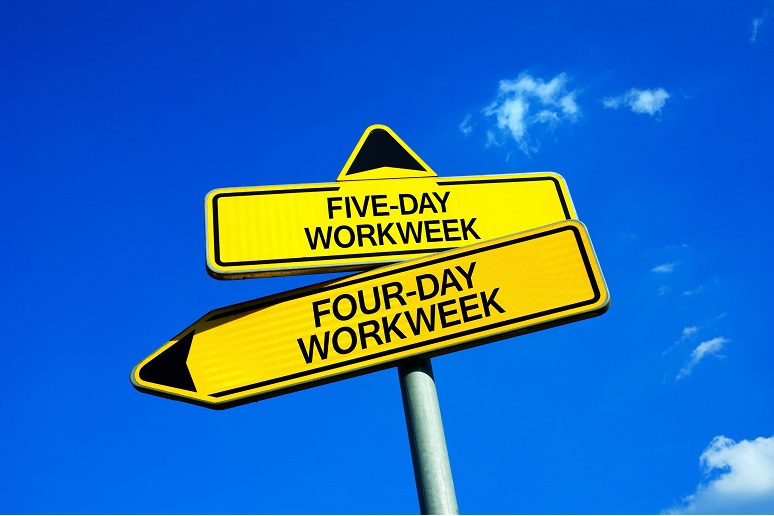Back in May 2023, I reported that employee interest in a four-day workweek isn't going away any time soon, and an increasing body of research demonstrated that going to a 32-hour workweek had no negative impact on workplace productivity and only a positive impact on workers' sense of wellbeing. In the intervening months, we've seen the United Autoworkers -- the union that brought you the 40-hour workweek -- say they want to make a 32-hour workweek the new normal, and there's been a slew of articles as different countries or cities or organizations try alternate workweek definitions.
Today on No Jitter, Metrigy's Robin Gareiss argues that there's a lot of room for workplaces to use generative AI to get more done in less time -- and that freed-up time could go back to the employees. She writes:
Too many business leaders see generative AI as a catalyst for higher profits, while avoiding any paradigm shift away from the 40 (or 50, or 60+)-hour workweek. Why not, instead, see it as a catalyst for improving more than just the bottom line?
What kind of improvements are these? Shorter workweeks can cut employee attrition, improve employee attitudes (which translates into better sales for customer-facing positions), and boost the quality of the applicant pool for open positions. Hiring is expensive; according to the Society for Human Resource Management, the average cost per hire is $4700.
The indirect costs are harder to quantify -- but when someone leaves, their departure affects the rest of the team and can impact productivity negatively. And even when someone's hired, it's going to be a few months before they're up to full productivity; a 2005 study by the Mellon Financial Corp. found that new hires didn't reach full productivity until they'd been on the job anywhere from eight to 26 weeks, depending on the position. Imagine the ripple effects on their colleagues' productivity. Wouldn't it be cheaper just to retain people by giving them a 32-hour workweek and calling it full time?
We've already redefined what it means to "go to work" once in this decade, using technology to decouple our productivity from a specific office location. Workers responded positively to this change which helped them maintain a more balanced life and a boosted sense of well-being. Let's continue seeing how to change work in ways that boost employee well-being -- and the company's bottom line.




